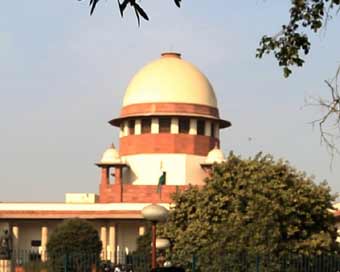 PM Modi visit USA
PM Modi visit USA Only the mirror in my washroom and phone gallery see the crazy me : Sara Khan
Only the mirror in my washroom and phone gallery see the crazy me : Sara Khan Karnataka rain fury: Photos of flooded streets, uprooted trees
Karnataka rain fury: Photos of flooded streets, uprooted trees Cannes 2022: Deepika Padukone stuns at the French Riviera in Sabyasachi outfit
Cannes 2022: Deepika Padukone stuns at the French Riviera in Sabyasachi outfit Ranbir Kapoor And Alia Bhatt's Wedding Pics - Sealed With A Kiss
Ranbir Kapoor And Alia Bhatt's Wedding Pics - Sealed With A Kiss Oscars 2022: Every Academy Award Winner
Oscars 2022: Every Academy Award Winner Shane Warne (1969-2022): Australian cricket legend's life in pictures
Shane Warne (1969-2022): Australian cricket legend's life in pictures Photos: What Russia's invasion of Ukraine looks like on the ground
Photos: What Russia's invasion of Ukraine looks like on the ground Lata Mangeshkar (1929-2022): A pictorial tribute to the 'Nightingale of India'
Lata Mangeshkar (1929-2022): A pictorial tribute to the 'Nightingale of India' PM Modi unveils 216-feet tall Statue of Equality in Hyderabad (PHOTOS)
PM Modi unveils 216-feet tall Statue of Equality in Hyderabad (PHOTOS)The Badminton Association of India (BAI) has announced a 14-member-strong India squad for
- Men’s Sr Hockey Nationals to be played in division-based format from April 4
- Mensik denies Djokovic 100th title in Miami final
- KIPG: Son of a vegetable vendor, Bihar’s Jhandu Kumar eyes Worlds, 2028 Paralympics
- Hardik Singh credits hard work and team unity for receiving HI Midfielder of the Year award
- Djokovic, Alcaraz land in same half of Miami draw
Nirmohi Akhara: Muslims stopped five-times prayers in 1934 Last Updated : 06 Aug 2019 01:32:16 PM IST 
Supreme Court (file photo) Arguing its claim on the disputed site in Ayodhya, Nirmohi Akhara informed the Supreme Court on Tuesday that Muslims stopped five-times prayers a day at Babri Masjid in 1934 and abandoned the "structure" in December 1949 even for Friday prayers.
The Nirmohi Amhara submitted before the Constitution Bench headed by Chief Justice Ranjan Gogoi that its claim over the disputed land was filed in 1934. And the counter claim suit was filed by the Sunni Wakf Board over disputed land in 1961.
The counsel for Akhara also claimed that idols of Lord Ram were placed inside the mosque on the night of December 22-23, 1949.
The counsel argued that Hindu parties performed daily prayers and contested the claims of Muslim parties that they offered daily prayers at the disputed site.
Sushil Jain, counsel for Nirmohi Akhara, arguing on the point that a place cannot be considered a mosque if prayers are not offered, said: "We have staked our claims since 1934. No namaz has been offered there."
The counsel also brought to the court's notice another evidence establishing its claim.
The provision of wuzu, an area where Muslims wash hands and body parts before beginning prayers, was absent from at the place, added the counsel.
"The prayers were never offered there since 1885, therefore we can arrive at a conclusion that it ceased to exist as a mosque many years ago."IANS New Delhi For Latest Updates Please-
Join us on
Follow us on








172.31.16.186







